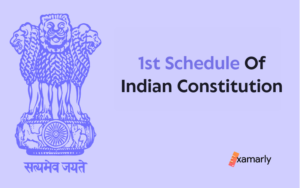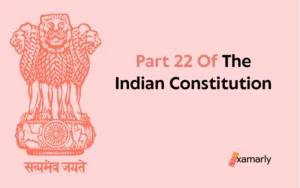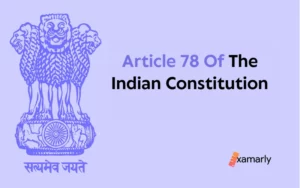“How to select optional subject for UPSC exam?”-This is a question asked by all the aspiring civil servants at the beginning of their Civil Service exam preparation for a higher success rate. We know you’re confused, but why do you have to ask this when you already know the answer within?
No, this isn’t a philosophy lecture. It’s a fact.
The optional topic that you select is divided into two papers. Each paper carries 250 marks. That means your optional paper in UPSC Mains is 500 marks. So, if you prepare well, these two papers can escalate your scores beyond your wildest imagination, and that’s why choosing the right options for yourself becomes crucial and acts as a game-changer.
Well choosing your options, you do not need any manual. You just have to pay attention to a few aspects in the beginning and then decide for yourself.
Also Read: UPSC Exam Pattern
One of the most frequent queries from candidates, whether they are novices or have taken the exam before, is how to choose an optional subject for Mains Exam. The UPSC exam’s second stage offers complete choice in selecting an optional topic. Since it carries a total of 500 points in the UPSC Mains test, it can set apart candidates for the UPSC. This is why care should be used when selecting the optional subject. For applicants, understanding How to choose one for UPSC would be a game-changer.
- Mistakes To Avoid While Picking An Optional Subject For The UPSC CSE Mains Examination
- Certain Factors To Consider Before Selecting An Optional Paper For Higher Scoring Rate
- Go Through The UPSC Mains Optional syllabus
- Consider Your Previous Background In mind To Get A High Scoring Optional
- Golden Tip: Follow Your Interest In UPSC Preparation
- Popular Optional Subjects For Civil Services Mains Exams And Preliminary Exams
- Interest, Expertise & Strategy For Civil Service Exam
- Why Choosing The Correct Optional For UPSC Civil Services Is Important
- Conclusion
- FAQ's
Mistakes To Avoid While Picking An Optional Subject For The UPSC CSE Mains Examination
Before we can talk about how to choose an optional subject for the Mains exam, we need to figure out what makes a subject good. The IAS aspirants claim that specific elements distinguish one optional topic from another, including
- It being a scoring subject
- Its popularity
- Basic understanding of that area during their undergraduate or graduate educational backgrounds.
The following are crucial criteria to take into account when choosing, according to the applicants’ points of view.
But these are not hard and fast wrong choices or absolute criteria that should shape your decision. To provide clarification, we’ve written a few points below.
- In actuality, the scoring ease doesn’t exist. Picking a subject that has done well in the past is not wise because that’s not the deciding factor.
- Success on exams cannot be accurately predicted by popularity. There are many top-scoring students who have successfully cleared the exam with subjects that aren’t popular.
- The important lesson to be learned from this is that you will do better when you are passionate about what you study, as students who chose courses that were significantly different from their academic background frequently scored very strongly in the Main exam.
Therefore, the advice provided below regarding things to avoid when choosing optional Subjects for the UPSC Mains are as follows:
- The first and foremost thing is don’t follow the herd and waste your precious time. You are not supposed to choose anything because it is the most popular among aspirants. Rather, you should choose your interest and check the availability of study materials and accessibility of books.
- The second thing is that you shouldn’t choose something which you have no interest in or which you don’t know anything about. Using the aforementioned criteria, make a list of 4-5 subjects and continue to think.
- The third thing is, don’t choose something which requires a lot of preparation time and study because the other papers require more preparation time than this one does.
Certain Factors To Consider Before Selecting An Optional Paper For Higher Scoring Rate
Certain factors that you need to consider before you select your optional area for UPSC Civil Services Examination are discussed below:
Go Through The UPSC Mains Optional syllabus
Mark the 3-4 subject options you find interesting from the optional list offered by UPSC. Analyze the optional exam syllabus for paper 1 and paper 2 and their previous year question papers thoroughly. Remember, the definite subject syllabus of the optional paper is that of the honors level. Leave anything or everything that doesn’t look like your cup of tea. It’s better to stay away than to create a mess out of nothing.
Consider Your Previous Background In mind To Get A High Scoring Optional
As was already mentioned, the optional paper has an honors-level syllabus. If you have a good grip and comfort level over your graduation area, go for it as your optional choice. However, this is not a hard and fast rule. Aspirants usually choose to sail with their bachelor’s (or post-graduation) area because that of course helps them to save a lot of time, provides academic background knowledge, and ensures an upper hand during the preparation.
Golden Tip: Follow Your Interest In UPSC Preparation
Preparing for UPSC is a long journey full of challenges, self-doubt, and frustration. It takes a lot of time, and aspirants are sometimes on the verge of giving up. This is why keeping your alternative paper interesting for yourself will help you. It’s totally fine to move away from your graduation area and go for something you have never studied before. It’s okay and ‘normal’ for a B-Tech graduate or someone with a science background to opt for English and a BA graduate to opt for Zoology as the optional paper. Many toppers have proved this. Just make sure that you find it interesting because not only will it mentally relieve you but also keep your mind fresh to grab new information.
Popular Optional Subjects For Civil Services Mains Exams And Preliminary Exams
It has been observed in the past few years that a lot of top-scoring students are opting for subjects that either looked easy or covered larger sections of the General Studies papers. Anthropology, Public Administration, Sociology, Political Science, Geography, Psychology, Law, Social Science, Medical Science, Current Affairs, Engineering Optionals, Animal Husbandry & Veterinary, Art Subjects, Literature Subjects, and History are 4-5 easiest optional papers and most popular among many categories of students in their Mains and Preliminary Examinations.
However, it’s a piece of serious advice to find your own interests and common knowledge gain, this is not a philosophy lecture) because going with a popular choice might ruin your whole dedicated preparation strategy without you even realizing it. Aspirants who took less popular subjects like Botany and Mathematics have scored well too. So, there is no ‘one-subject-fits-all’ trick here. Plus less popular subjects have less competition as well.
Know that the competition is among the people who’ve chosen the same subject. The social sciences papers have a huge number of applicants and because they score well in these subjects, it’s very difficult to get high marks.
It is less risky to enroll in a subject with fewer applicants. That is to say, if you feel at ease in a subject with fewer competitors, you have a better chance of achieving higher grades.
Interest, Expertise & Strategy For Civil Service Exam
Let’s assume you’re ready to put in all your efforts to excel in your optional paper. You have what it takes to build both the interest and the expertise. You need to check if you have enough availability of preparation material, availability of quality guidance in the short availability of resources should be there. What next? Your UPSC strategy! How much time do you have to prepare for your optional? Can you still go for a subject with tons of topics to cover? Or maybe you will have to select one of the aforementioned subjects with the least number of topics just because you are running out of time. Plan everything well because your selection will depend on it in Civil Services Exam.
Why Choosing The Correct Optional For UPSC Civil Services Is Important
In a nutshell, the UPSC main test has two optional subjects, each worth 250 points. This implies that the UPSC main exam’s topic selection should account for 500 marks. Candidates for the course are expected to earn a lot of marks in this subject because it will significantly affect the probability of being qualified for the next Mains level. Scoring maximum marks on the subject is quite simple if you decide to go with the personal decision of subject you have an interest in and if you also take into account the factors that we discussed before.
Conclusion
If you start UPSC preparation for the alternative paper for the UPSC Mains exam from the very beginning of your UPSC preparation, you might consider yourself lucky enough to know all the above analyses in adequate time. However, if there are only a few months left like 2-3 months, you will have to hurry up, buddy. Go with anything that flows well and doesn’t eat up much of your time. But, as we said earlier, there is nothing like a ‘one-subject-fits-all’ scenario here. Ultimately, it totally depends on the water you’re sailing through and your level of stability. It depends on the choices among candidates’ preferences.
Don’t brush it off your sleeves. Think well, and devote enough time to select your elective subjects and practice answers to conceptual questions because switching to another subject later on after committing months to it just because the other one is only adding up to the stress doesn’t sound like an informed decision.
Time is precious. You don’t want to lose it on the wrong decision and end up changing your elective subjects.
Be well-prepared for both papers. Stick to the optional syllabus, practice answer writing, and you’ll be good to go!
We hope the above-mentioned criteria answered your query about how to select optional subject for UPSC exam.
FAQ’s
Q1. Which UPSC Optional Has The Most Condensed Syllabus?
48 optional subjects are available. The syllabus for philosophy is the shortest of all of them. This explains why applicants are interested in this. Nevertheless, when selecting an optional subject for the UPSC, the idea of a shorter or lengthier syllabus shouldn’t be the only consideration.






